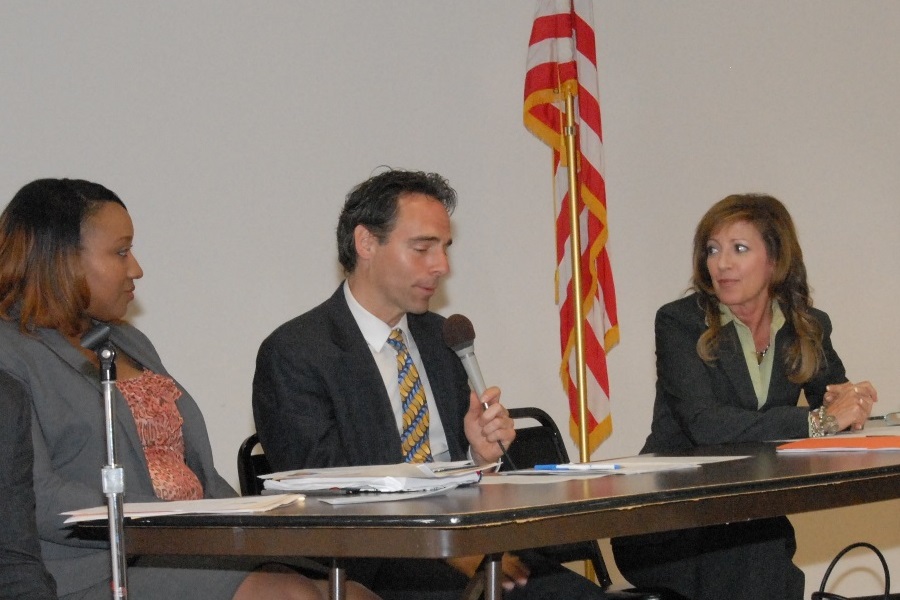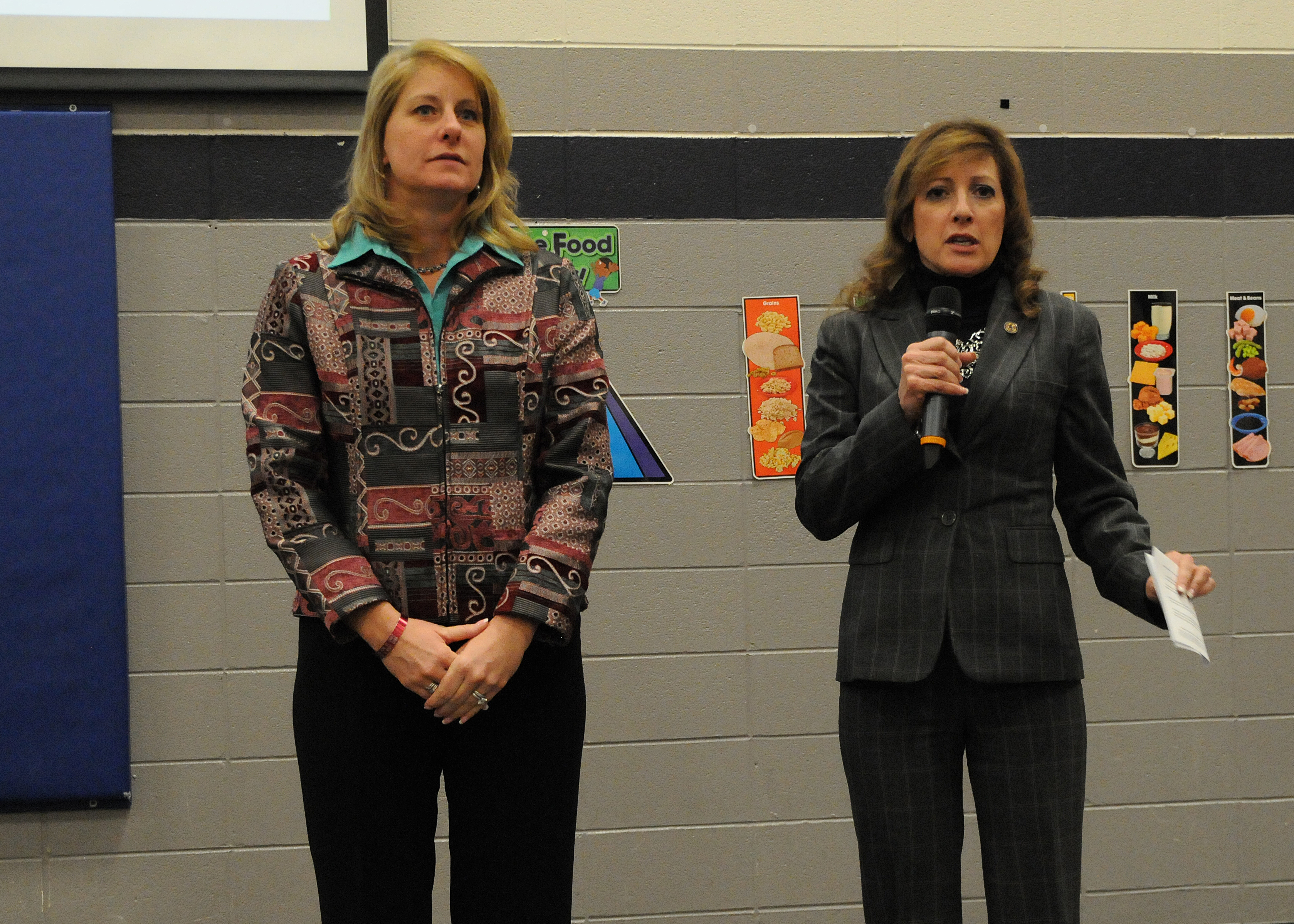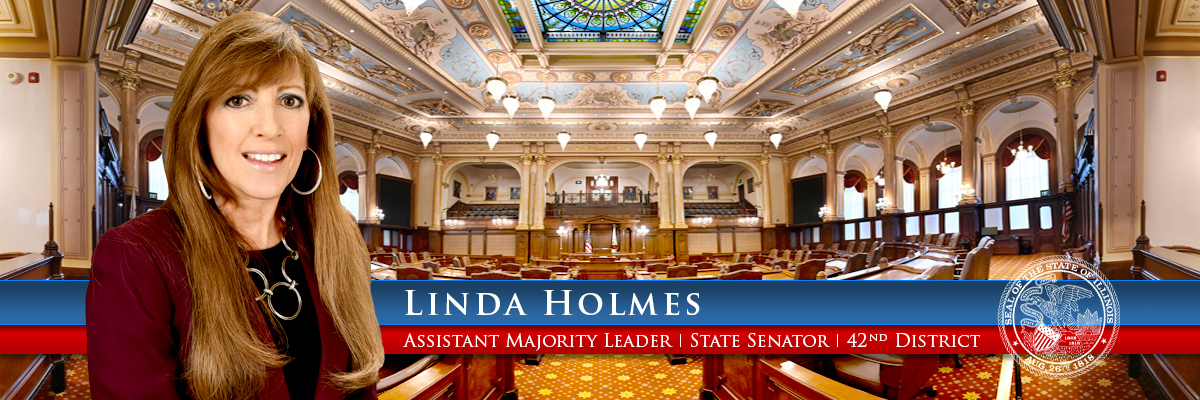- Details
- Category: Latest

By Mike Dahaney
Losing a tax credit program that funds projects in six Illinois river towns, including Aurora and Elgin, would hinder further redevelopment in those cities, local officials told state lawmakers Monday.
The message delivered during a lunchtime hearing of the State Senate Commerce and Economic Development Committee in Rockford specifically related to the Hobbs Building and vacant St. Charles Hospital in Aurora and Elgin's Tower Building.
"This is an extremely important topic for the Aurora area," said Democrat State Sen. Linda Holmes of Aurora, who chairs the committee. "It's something we've utilized and need to utilize."
The session was hosted by Democrat State Sen. Steve Stadelman of Rockford and run by Holmes with Democrat State Rep. Litesa Wallace of Rockford also sitting in on the proceedings.
"It's a matter of timing and momentum," Elgin Assistant City Manager Rick Kozal told the lawmakers.
- Details
- Category: Latest
Reboot Illinois - April 27, 2015 | Original story
by Madeleine Doubek
Something is wrong in Illinois when you have a fiscal crisis you go a long way toward solving by “sweeping” $1.3 billion out of nearly 800 different state funds, seemingly in the time it takes to click your heels together and say, “Sweep away.”
That’s just about what happened at the end of March, minus the heel clicking. Then, after lawmakers flipped out when they thought they’d solved their immediate crisis only to find out key programs for the poor, sick and disabled were enduring $26 million in cuts, Gov. Bruce Rauner’s budget office suggested another sweep might ease the pain.
I don’t know about you, but on those rare days when I sweep at my house, I’m lucky to find a penny, not millions or billions. I knew we had a bunch of funds from specialty license plates and for charitable causes, but I’d never paid much attention, so I did some asking.
Illinois has nearly 800 different funds. They include the general revenue fund, the big one we all tend to focus on this time of year. They also include some others like a road fund and a motor fuel fund. And then there are, quite literally, hundreds of others like: Illinois State Police Memorial Park, Illinois Veterans Rehabilitation, Illinois Police K-9 Memorial, State Boating Act, State Parks, Wildlife & Fish, Salmon, Military Affairs Trust, Lobbyist Registration Administration and Agriculture Premium.
Then there’s the Federal Mass Transit Trust, Share the Road, National Flood Insurance Program, Land Reclamation, Federal Energy, Cycle Rider Safety Training and Farmers Market Tech Improvement.
I randomly just picked a few spots from a column of 792 sent to me by Comptroller Leslie Munger’s office. Omitting the general revenue fund, the biggie that funds state operations each year, all these funds late last week had $9.67 billion in them.
That’s a whole lot of our money we never hear much about. The good news? Last week, the Illinois Senate approved a bill, SB1404, that attempts to make sure these funds get audited every year. Another, SB 1405, seeks to see if some of these funds can be consolidated.
The bills probably aren’t perfect. I think it’s a bit rich that they create yet another special board to work on shrinking the number of funds over the next several years. And it sounds like the bills keep the audits exempt from FOIA disclosure. Isn’t the problem here that the funds are managed in the dark? Well, yes.
Still, state Sen. Linda Holmes, an Aurora Democrat who sponsored the bills, said it’s a start at making the funds “a little more manageable and … a little more transparent for everybody.”
- Details
- Category: Latest

By Linda Girardi
Illinois Gov. Bruce Rauner recently said that like a family, everyone must come together to address the reality of the state's financial crisis.
But the mayors and village presidents that represent some 750,000 residents in Kane, Kendall and DeKalb counties aren't feeling the love.
"For years Springfield has pick-pocketed municipalities. Now the governor has advocated armed robbery," Geneva Mayor Kevin Burns said Tuesday.
Representatives of the Metro West Council of Government municipal alliance Tuesday balked at the governor's proposal to slash in half the local governments' share of state income tax revenue.
Rauner made the announcement during his first budget address to the Illinois General Assembly last week, as part of a budget plan to "restore Illinois to fiscal health," he said.
The suburban leaders met at the annual Metro West Legislative Breakfast at the Gaslite Manor in Aurora to send a unified message back to Springfield that the governor's proposal is not acceptable.
The suburban mayors and village presidents in their response said they have made their fair share of sacrifices as municipalities and now it is time for the state of Illinois to do its fair share.
Nine state senators and representatives from the area attended the nearly three-hour session. Burns said the governor's policy-makers neglected to seek input from local municipalities.
State Sen. Linda Holmes, D-Aurora, said while the governor is new in the political process the proposed cuts are "real life issues" and not a "training exercise."
She said regardless of what is proposed in the budget, it will take 60 votes in the House and 30 votes in the Senate to pass measures.
Many of the leaders present said that Rauner needs to understand the concerns raised at the Aurora meeting.
Read the full version of the original article.
- Details
- Category: Latest
Illinois Public Radio - Feb. 4, 2015
Rauner acknowledged up front that voters elected him - a Republican - and supermajority of Democrats in the legislature.
"They don’t want partisan bickering, political infightin', or personal conflict to get in the way of servin' the needs of the families of Illinois," Rauner said.
Rauner spoke of inequities in granting contracts to minority-owned companies, and prison conditions that he called “unacceptable.”
Many Democrats say they support those initiatives. But they are already bristling at Rauner’s insistence that labor unions are to blame for the state’s financial problems.
Last week, health and human service agencies began to run out of grant funding leftover from the previous administration.
Rauner says he wants local governments to create so-called Right to Work laws - similar to those that caused major protests in Wisconsin and Indiana.
Democrats like west suburban State Senator Linda Holmes say unions are the organizations that helped create the middle class - and attacking them won’t fix the state’s financial problems.
Listen to the original story.
More Articles …
Page 19 of 25




